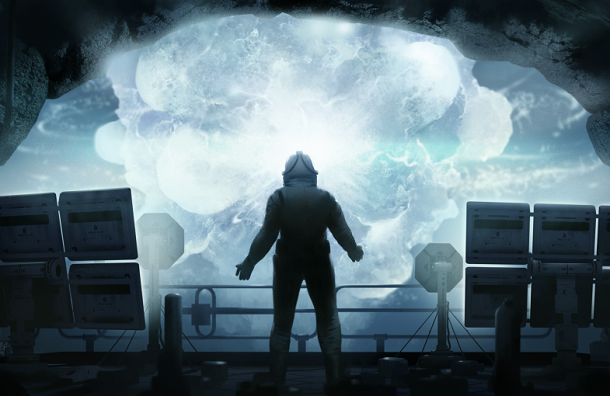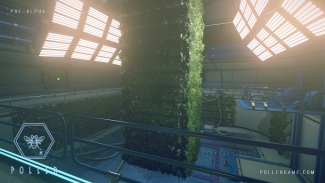
PAX East 2015 opened its arms wide to virtual reality. One of the first games we took a look at during the show Was Pollen. Created by nine-person Finnish studio Mindfield Games Ltd., Pollen is a first-person exploration game, much in the same vein as Gone Home. The plot puts you in the shoes of a researcher at Research Station M on Titan, one of Saturn’s seven moons.
It controls and plays just as you’d expect: as you make your way around the abandoned space station you examine objects, find clues and piece together tiny bits of information as to what went down on the now abandoned station. Visually it didlook nice, but overall I found myself pretty underwhelmed by the whole experience.
The implementation of virtual reality in the demo was pretty standard given the hardware at their disposal and current state of Oculus headsets. It was cool to be able to look around the station, but Pollen really didn’t do anything groundbreaking with the new technology and sort of felt like it was tacked on as a means to draw more attention to an otherwise average first-person exploration game.
 The sense of creeping isolation that I really appreciate in games and movies set in abandoned space stations did seem to be there. However, I felt like the tension would have been more effective if I had played it anywhere else but in a loud, crowded expo hall. That’s the issue with demos like this: the final product would never be played in this kind of setting, so it’s often difficult to get into the mood when there is a line of people behind us and booming music one booth over.
The sense of creeping isolation that I really appreciate in games and movies set in abandoned space stations did seem to be there. However, I felt like the tension would have been more effective if I had played it anywhere else but in a loud, crowded expo hall. That’s the issue with demos like this: the final product would never be played in this kind of setting, so it’s often difficult to get into the mood when there is a line of people behind us and booming music one booth over.
I should note that there will be other characters in the station. What shape or angle that their inclusion is approached with is still to be seen, as project lead Olli Sinerma declined to shed any more light on the subject, instead saying that the mystery will only help aid in creating the tense experience that they are going for.
As it stands Pollen is currently being developed for PC and optimized for use with Oculus VR headsets. The game can be played sans Oculus, however, and could easily be ported to Mac and Linux. There’s even the possibility of future ports being adapted to utilize the technology of Sony’s Project Morpheus VR unit, but the current product has to be completed first.

No Comments